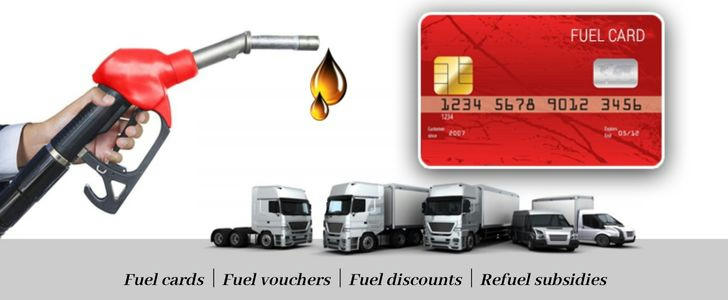U.S. Fuel Card Assistance and Savings Guide
Fuel cards — also known as gas cards — are a practical way for Americans to manage and save on fuel expenses. They’re accepted at most major gas stations, including Shell, ExxonMobil, BP, and Chevron, and can be used for gasoline, diesel, and select vehicle-related purchases.

While many drivers rely on commercial fuel cards for budgeting and rewards, others may qualify for fuel assistance through government or nonprofit programs that help individuals and families with transportation or commuting costs.
Government and Community Fuel Assistance
The U.S. does not have one single national “fuel card” initiative, but many states include fuel support within their broader energy or transportation assistance programs.
For example:
- Some states extend LIHEAP (Low Income Home Energy Assistance Program) to include limited transportation support for households facing financial hardship.
- Community Action Agencies (CAAs) in places such as California, Texas, and Ohio may offer gas vouchers or prepaid fuel cards for residents traveling to work or medical appointments.
- Veterans Affairs (VA) and veteran support networks sometimes provide fuel assistance to help veterans reach VA hospitals and service centers.
Typical application requirements include:
- Proof of income or benefits (such as SNAP, SSI, or TANF)
- Photo identification and proof of residence
- Vehicle registration or documentation of transportation needs
To locate local programs, residents can dial 2-1-1, a nationwide community assistance hotline that connects callers with nearby agencies offering transportation and energy support.
Nonprofit and Faith-Based Support Programs
Several major U.S. nonprofits and faith-based organizations operate community fuel support efforts, often as part of their emergency relief or financial aid services:
The Salvation Army – Offers limited fuel card or gas voucher assistance through its Emergency Financial Assistance program for households needing transportation help.
Catholic Charities USA – Provides local transportation aid, which may include fuel cards or travel reimbursements, depending on regional funding.
St. Vincent de Paul Society – Some local chapters run Gas Assistance Programs focused on helping workers and parents with commuting expenses.
United Way / 211 Network – By calling 211, residents can connect with community programs offering gas cards, transportation stipends, or energy-related assistance.
These services are generally meant to help cover essential travel costs rather than provide long-term benefits.
Commercial Fuel Cards and Savings Programs
For everyday drivers, commercial fuel cards remain a useful tool for managing expenses and earning rewards. Major options include:
- Shell Fuel Rewards® Card – Offers savings per gallon and loyalty bonuses at Shell stations nationwide.
- ExxonMobil™ Smart Card+ – Provides up to 10¢ per gallon in cash-back savings.
- BPme Rewards Visa® – Combines fuel savings with points and mobile app tracking.
- Costco Anywhere Visa® by Citi – Gives up to 4% cash back on eligible fuel purchases.
- AAA Fuel Rewards – Members of the American Automobile Association can receive additional savings at participating stations.
These cards help drivers reduce fuel expenses while maintaining spending records, which can be particularly useful for families and small business owners.
Who Uses Fuel Cards: Demographics and Needs
Fuel card use varies widely by age and stage of life:
- 18–24 years old: College students and new workers often rely on budget-friendly or cash-back fuel cards to manage transportation costs.
- 25–44 years old: Commuters and families with frequent driving needs often choose loyalty-based cards to accumulate consistent savings.
- 45–54 years old: Many oversee household or business vehicle expenses and prefer detailed tracking tools.
- 55–64 years old: Focus on steady budgeting and value programs offering predictable savings.
- 65–74 years old: Retirees on fixed incomes may benefit from local or state assistance options.
- 75–85 years old: Often depend on caregivers or family members to manage fuel payments for medical or personal travel.
Tips for Finding and Using Fuel Assistance
- Start local: Contact your city or county’s Community Action Agency or call 211 for verified programs.
- Prepare documents: Bring proof of income, ID, and vehicle registration when applying.
- Understand card terms: Assistance cards typically apply only to fuel or transportation-related purchases.
- Be cautious: Genuine programs do not ask for “activation fees” or require deposits.
- Track spending: Keeping receipts helps maintain eligibility and personal budgeting records.
User Story: Maria’s Experience
Maria, a single mother from Ohio, was struggling to afford gas while searching for work after being laid off. When she contacted United Way through the 211 hotline, she was referred to a local Salvation Army center that offered short-term fuel support for job seekers.
With the prepaid fuel card she received, Maria was able to attend several job interviews — and soon found a position at a nearby grocery store. “It wasn’t just about the gas,” she said. “It meant I could get back on track.”
Her experience reflects how community-based fuel assistance programs can provide essential mobility and opportunity when people need it most.
Final Thoughts
Fuel cards in the United States serve many purposes — from everyday budgeting to essential transportation assistance. They’re part of a broader network of community support that helps individuals and families stay connected, reach workplaces, and maintain independence.
